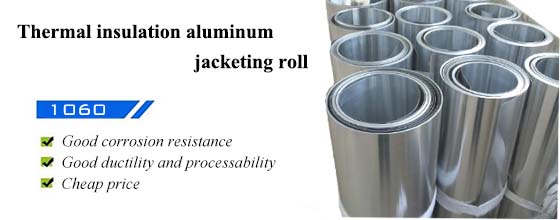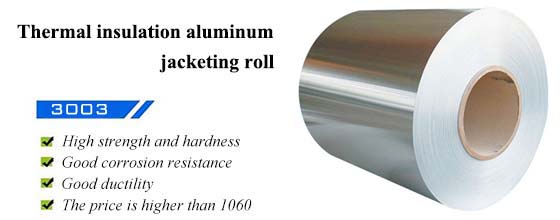- Email: sales@flait-aluminum.com
- Tel: 0086-13203837398
In cold areas, many factory equipment, facilities, and pipes are easily affected by cold winds, leading to frost cracking and damage, so it is very important to do a good job of thermal insulation. Commonly used insulation materials include iron sheets and aluminum jacketing roll. Iron sheets are prone to rust and corrosion and have a short service life. Therefore, thermal insulation aluminum jacketing rolls are very popular in the market.
Aluminum sheets or aluminum coils used for pipe insulation have a relatively long service life, which can be as long as 20-40 years. Users can choose the appropriate thickness according to their needs. The thinner the thickness, the easier it is to operate. Common types of pipes such as exhaust pipes, drainage pipes, etc. are all made of aluminum jacketing. Common aluminum jacketing insulations have a purity of more than 99% and have thicknesses of 0.3mm aluminum jacketing, 0.35 aluminum jacketing, 0.45 aluminum jacketing, 0.55 aluminum jacketing, 0.38mm aluminum jacketing and 0.43mm aluminum jacketing. The most commonly used thicknesses are between 0.3mm-1.0mm, aluminum coils with width 1000mm-1200mm.
Thermal insulation aluminum coils are widely used in construction, home appliances, automobiles and other fields. 1060 thermal insulation aluminum jacketing roll and 3003 thermal insulation aluminum jacketing roll are two common materials. Although they are both aluminum alloys, there are significant differences in composition, properties and applications.
 Chemical composition
Chemical composition1060 thermal insulation aluminum jacketing roll is a pure aluminum plate with an aluminum content of more than 99.6%, while 3003 thermal insulation aluminum jacketing roll is an aluminum-manganese alloy containing 1.2-1.8% manganese. This difference in composition leads to differences in performance between the two.
 Performance
Performance
1060 thermal insulation aluminum jacketing roll has good ductility, conductivity and corrosion resistance, and is relatively low-priced.
Therefore, it has been widely used in some situations that do not require high strength, such as insulation materials, packaging materials and other fields.
However, its strength is relatively low and it is not suitable for applications where it can bear larger loads.

3003 thermal insulation aluminum jacketing roll contains manganese, it has higher strength and hardness, while also maintaining good ductility and corrosion resistance.
This material maintains a certain degree of lightness while also having a higher load-bearing capacity.
Therefore, it has been widely used in areas that require high strength, such as building curtain walls, automobile bodies and other fields.
 Machining and surface treatment
Machining and surface treatmentThere are also some differences in processing and surface treatment between 1060 and 3003 aluminum thermal insulation aluminum jacketing rolls. Due to its characteristics of pure aluminum, 1060 aluminum jacketing has good processing performance and is easy to perform cutting, bending and other processing operations. 3003 aluminum jacketing contains manganese, its processing performance is relatively poor, and more suitable processing methods and tools need to be used. In addition, in terms of surface treatment, 3003 aluminum jacketing is easier to implement surface treatment processes such as anodization, thereby obtaining better appearance and corrosion resistance.
Aluminum jacketing can reflect infrared rays and has a very outstanding thermal insulation effect. In addition, the aluminum jacketing is not easily corroded by oxygen and water and rusts, so it has a relatively long service life, generally more than 20 years, which can reduce the maintenance cost of the building.
3003 aluminum alloy coils belong to the 3 series of aluminum-manganese alloys. The hardness of 3003 is slightly higher than that of 1060, and the price is also more expensive than 1060. Generally, 1060 aluminum coils are chosen for most projects. In practical applications, the choice of 1060 or 3003 thermal insulation aluminum jacketing roll mainly depends on the specific use occasions and requirements. For example, in situations where higher strength, corrosion resistance and load-bearing capacity are required, such as building curtain walls, automobile bodies, etc., 3003 aluminum jacketing is usually selected; while in situations where strength is not required and cost control is more important, such as insulation materials, packaging materials, etc., 1060 aluminum jacketing is more suitable.
Original Source:https://www.flait-aluminum.com/Aluminum-Jacketing-Coil-Roll.html